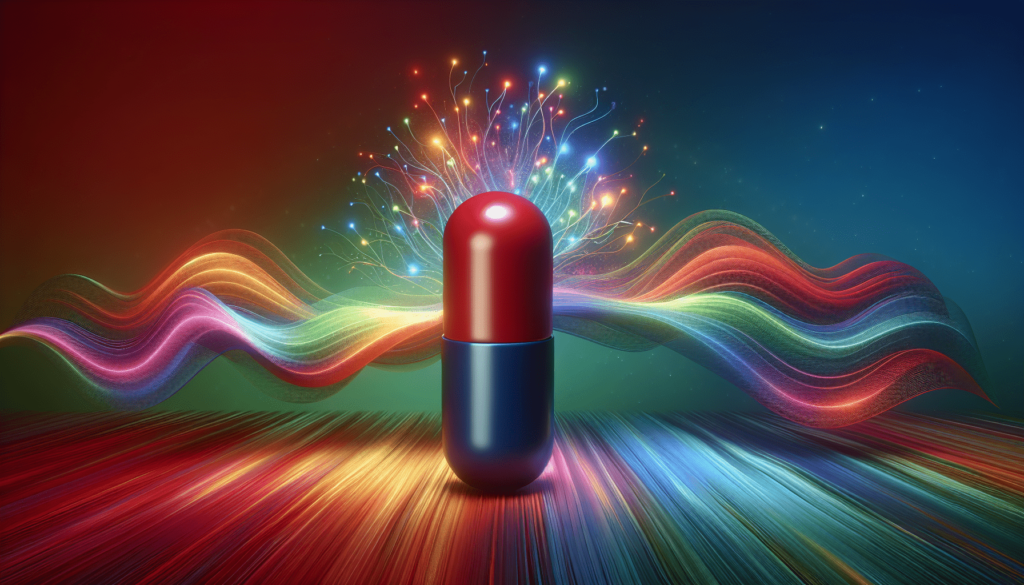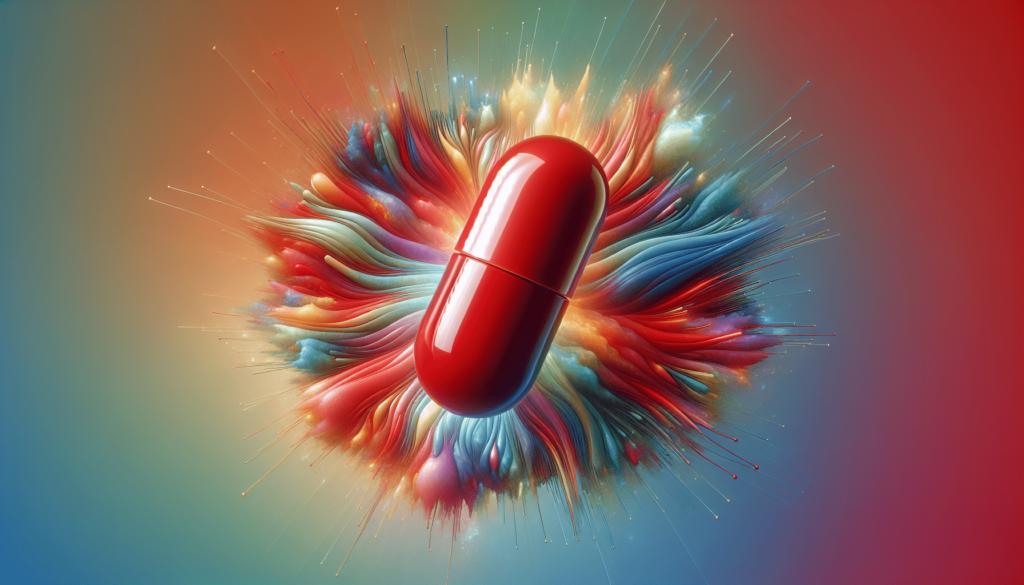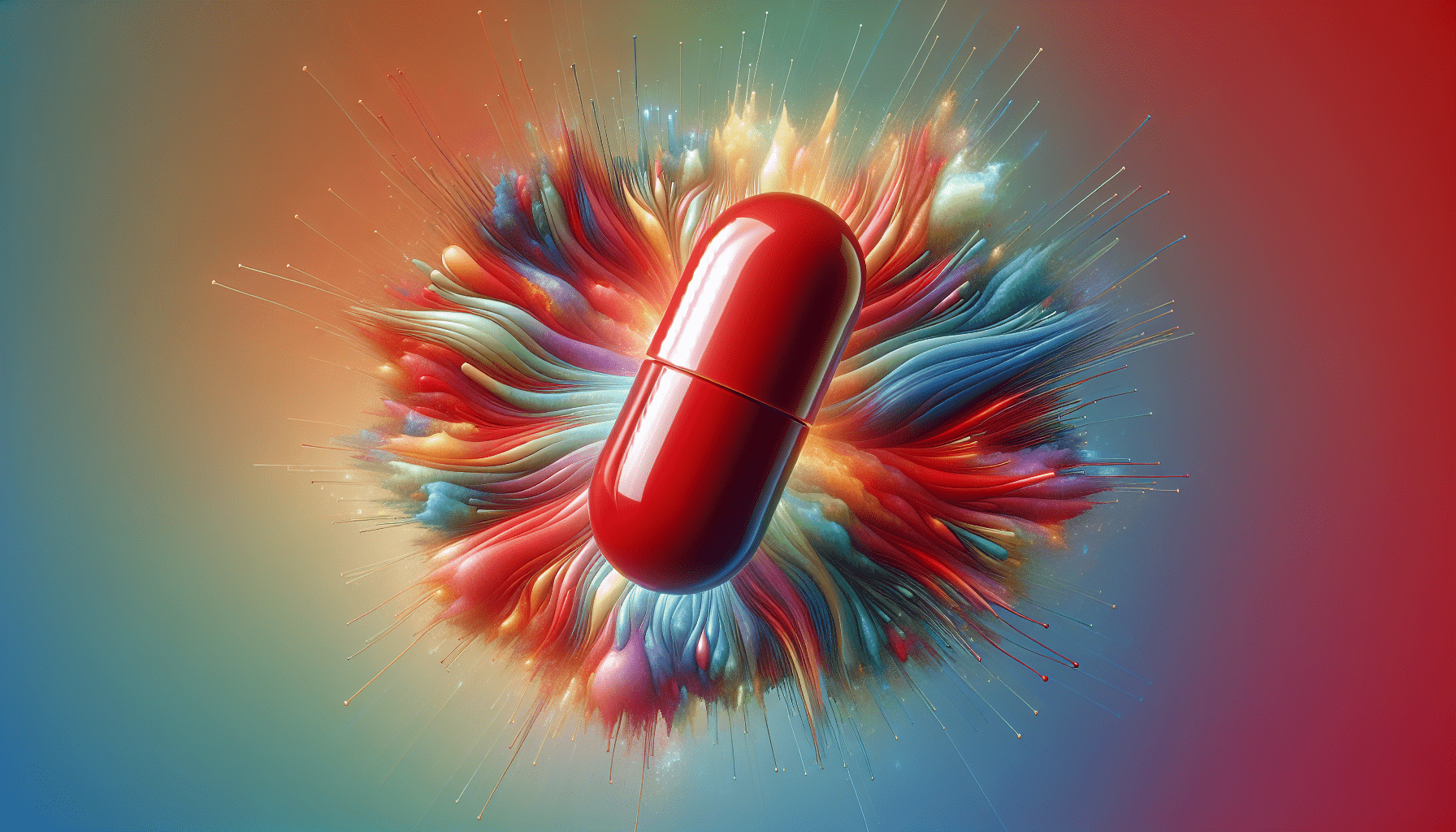Did You Really Think That Sixth Cup of Coffee Was Going to Save You?
Ah, the struggle of modern life: who hasn’t found themselves midway through a Monday morning contemplating the abyss of their energy reserves and wondering if perhaps your soul has been sucked out by the fluorescent lights overhead? What if I told you that the reason for your zombie-like trudge could be, dare I say, a deficiency in a little vitamin with a big impact—Vitamin B12? It’s possible you might have gasped and clutched your kale salad just now! Fear not, for we’re about to embark on a journey that might save you from a lifetime of caffeine-fueled delusions.

Vitamin B12 Brings More Than Just a Pop of Color to Your Life
Vitamin B12, known in the scientific world as cobalamin—because why use one term when ten will do—is that essential little nutrient with a fan club bigger than some reality TV stars. It plays crucial roles in the formation of red blood cells, neurological function, and the production of DNA. But wait—there’s more! Your energy levels depend on it too, unless of course, lethargy and confusion are your personal brand.
It’s Not Made by Elves
Unlike those elusive elves, your body can’t produce Vitamin B12, and no, wishing upon a star won’t change that. You must obtain this vital nutrient from outside sources. It hides in animal products like a stealthy ninja: beef, liver, eggs, and dairy products. For those who avoid meat, fortified foods or supplements are a must. But more on that later!
Your Gut: A Place of Hope and Wonder
Before Vitamin B12 can work its magic, it must embark on a treacherous journey through your digestive system. Imagine a soap opera, complete with twists, turns, and unexpected entrances. B12 must team up with intrinsic factor, a protein produced in your stomach, to make itself absorbable in your intestines. It’s like the ultimate buddy cop movie, but with fewer explosions and more hydrochloric acid.
B12 and Energy Production: A Match Made in Your Mitochondria
Now, let’s get down to the nitty-gritty of energy production. Imagine your body as a bustling city. If your organs could vote, your mitochondria would be crowned Mayor of Energyville. These tiny power plants rely on B12 like you rely on Netflix after a rough day. Without it, the process of converting food into energy—also known as the Krebs cycle (no relation to that weird cousin you never talk about)—would come to a halt.
ATP: The Unsung Hero
ATP, or adenosine triphosphate if you’re fancy (and let’s face it, you are), is the main energy currency of your cells. It doesn’t wear a cape, but it saves the day every single minute. B12 helps synthesize this molecule, keeping it in abundant supply to ensure every cell functions at top-notch capacity. It’s like cash for your cellular economy, except you don’t have to wait tables all summer to earn it.
Homocysteine and How Not to Offend It
Here’s where things get a bit spicy. Imagine homocysteine as the grumpy troll living under the bridge that is your circulatory system. When B12 levels plummet, homocysteine levels soar, and nobody wants to deal with an angry troll. Elevated homocysteine is linked to heart disease, and it’s as if your heart throws its hands up in frustration from the lack of vitamin B12!

Is Your Lifestyle Serving You a Plate of B12 Deficiency?
If your lifestyle choices or diet have been less than B12-fulfilling, your body might start to gently rebel—or loudly protest. Fatigue, weakness, constipation, loss of appetite, and a stunningly unique shade of lemon-yellow skin may signal a deficiency. Sometimes it’s like your body is trying out for a dramatic role in a low-budget daytime soap, just a lot less flattering.
Look at You, So Unique and Special
Certain groups are as likely to have Vitamin B12 deficiencies as toddlers at a broccoli buffet. Older adults, vegetarians, vegans, people with gastrointestinal disorders—it’s a veritable party of potential B12 shortage. And, if you just so happen to take metformin for diabetes or certain heartburn drugs, your need is even higher. You might need to invite fortified foods or supplements to your evening soirées.
The Magic of B12 Injections
For some, B12 injections are the ultimate pick-me-up, like that one friend who’s always ready to help you move (but with a little more science). Some folks can’t properly absorb B12 through digestion alone. These injections ensure that B12 gets a direct VIP pass to where it’s needed, sidestepping the whole process as deftly as a lawyer at a well-timed prenup signing.
Table: Warning Signs You Might Need More B12 in Your Life
| Symptom | Possible Cause | Justification for Alarm |
|---|---|---|
| Unusual Fatigue | Decreased red blood cell production | We’re not in an energy crisis… yet. |
| Tingling Sensation | Nerve problems due to B12 deficiency | You’re not auditioning for an alt-reality Spidey. |
| Memory Issues | Brain not functioning on full octane | Losing your keys every week is not normal. |
| Mood Changes | B12’s involvement with neurotransmitters | It’s not just that bad soap opera plot again. |
| Jaundiced Skin | Lack of red blood cell production | No chic yellow undertones were ever in style. |
Can You Have Too Much of a Good Thing?
Unlike sunshine and vacations, B12 is water-soluble, meaning any excess is usually excreted through urine. Translation? You finally can say you have something in common with a racecar—in this case, extreme flushing! But before you start mainlining B12 smoothies, know that too much of it can sometimes cause complications, like dizziness or headaches. Moderation might not be your middle name, but it should be when it comes to B12 supplements.
Mastering Your B12 Intake: Food or Fantasy?
Incorporating B12-rich foods into your diet is simpler than completing a sudoku puzzle blindfolded or reconfiguring phone chargers with one hand. The table below helps you sort out possible menu additions.
Table: Common Sources Of Vitamin B12
| Food | B12 Content (micrograms per serving) | Would It Pair Well With Wine? |
|---|---|---|
| Beef liver | 70 (per 3 oz) | You may need a strong red for this guy. |
| Clams | 84 (per 3 oz) | Don’t get shellfish; go for a white. |
| Fortified Cereal | 6 (per cup) | Yet to have wine listed as a breakfast option. |
| Salmon | 4.55 (per 3 oz) | A mild white wine to match the Omega-3 tang? |
| Eggs | 0.6 (per egg) | Only for a brave brunch pairing. |
Vitamin B12 and You: Partners in Thyme… I Mean, Time
In your quest to become an energetic, vibrant person who’s not glued to the couch, understanding the significance of Vitamin B12 in energy production is key. It’s like tracking the plot of a novel that’s achingly slow to reveal its main character’s motive, yet entirely rewarding in the end when you finally crack the code.
Putting It All Together
While B12 isn’t some magic bullet or mystical unicorn galloping to erase all your fatigue woes, it does play a substantial role. When it helps convert carbohydrates into glucose, dreams come true. The healthier you keep your B12 levels, the more vital your energy feels, as if you’ve been granted a VIP pass to the concert of feeling alive, awake, alert, and enthusiastic. Keep your B12 levels checked, pamper them with good dietary choices, and, maybe, find the energy to tackle your overdue chores. Or make this newfound vigor count by… inventing excuses to avoid them altogether.
Last Thoughts
In conclusion (but not in a way where you can zone out), understanding the role of Vitamin B12 in energy production helps you claim your stake in the lottery of life that is exuberance, zest, and vivacity. Who knew it would all boil down to a humble vitamin with a name sounding suspiciously like a chemical formulation from a James Bond film? Just remember, you didn’t hear it from me, but the next time your energy dips, go for some B12 instead of a sixth coffee. Your heart—and perhaps your co-workers—will thank you.
